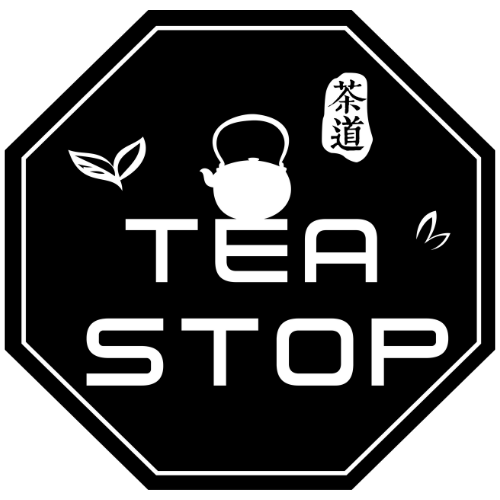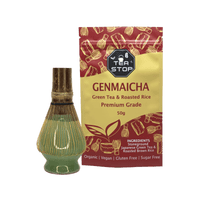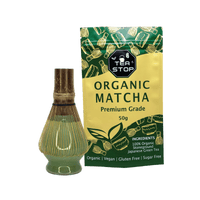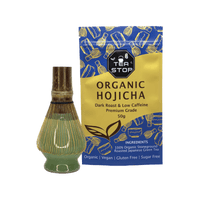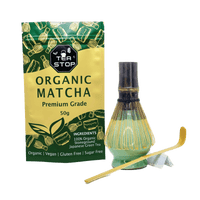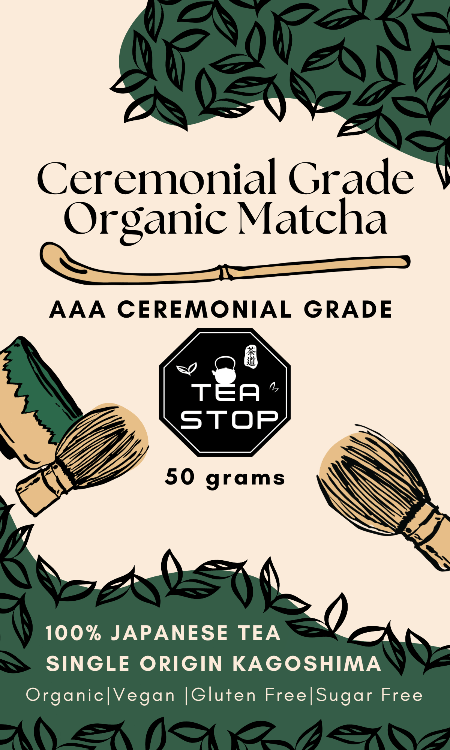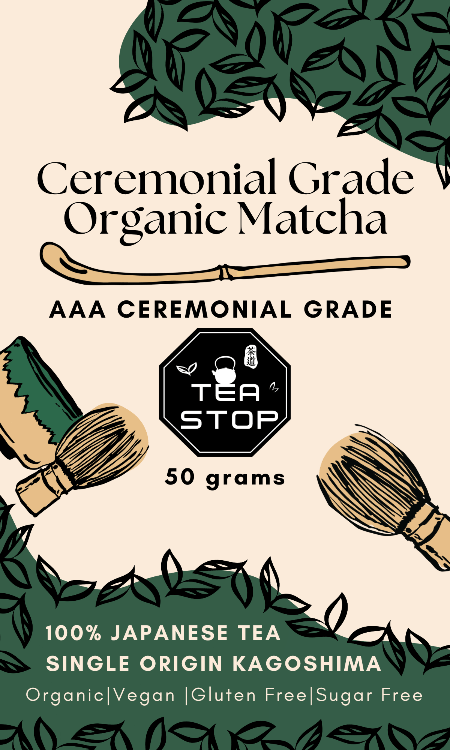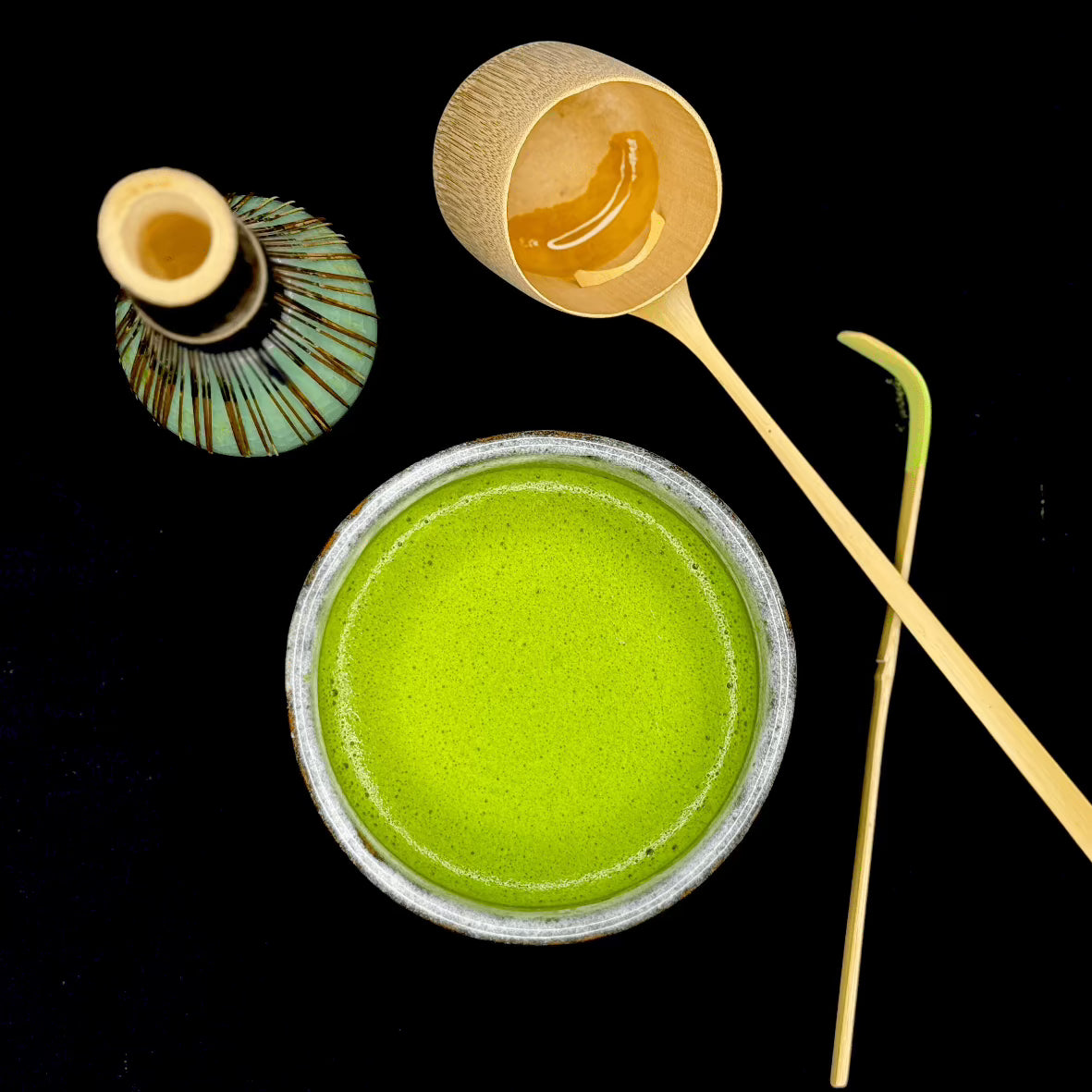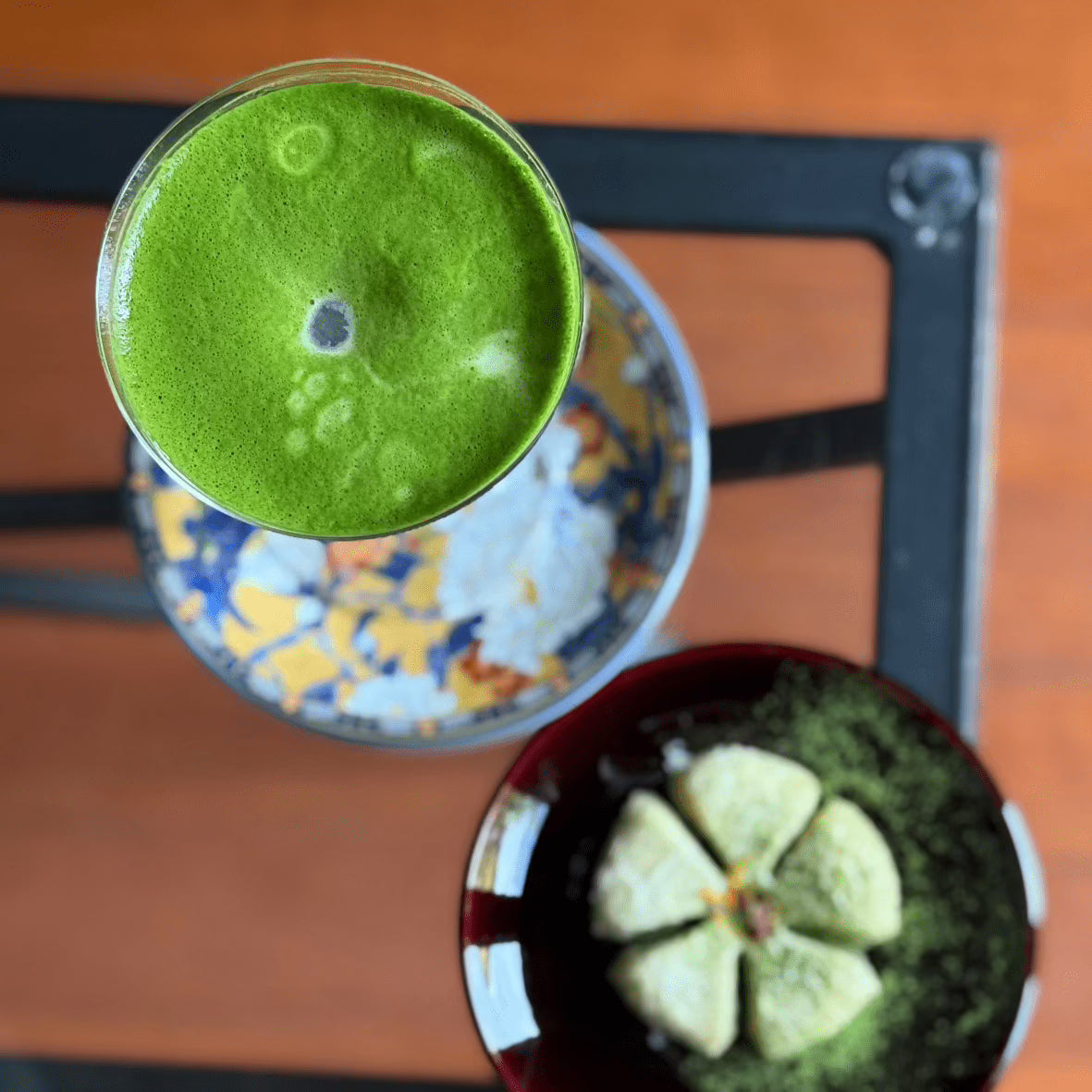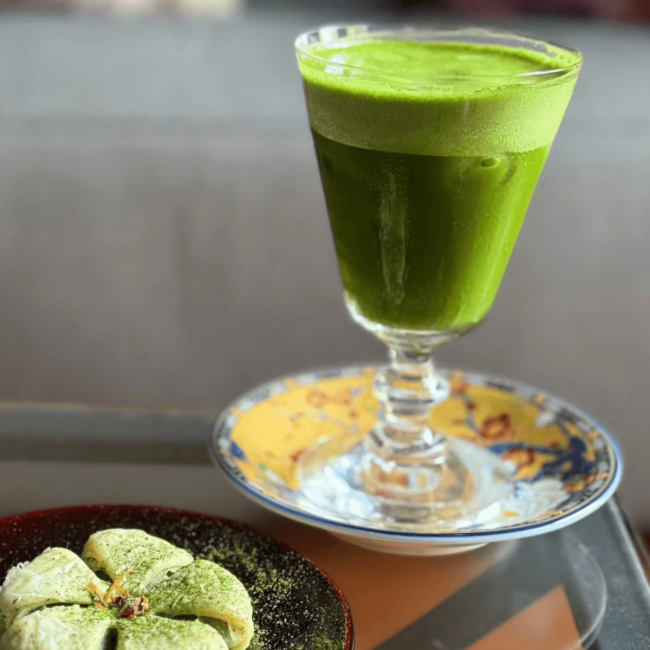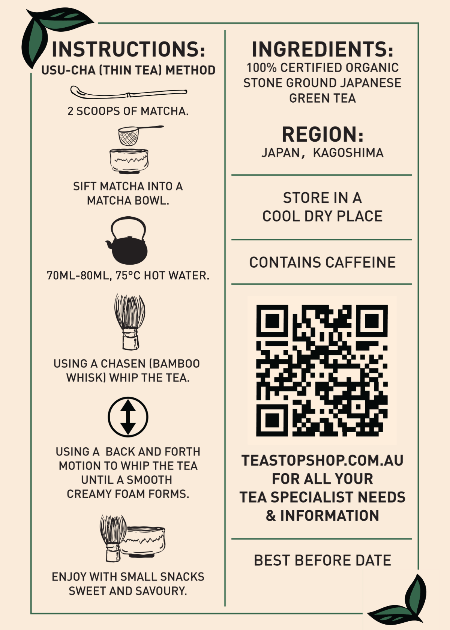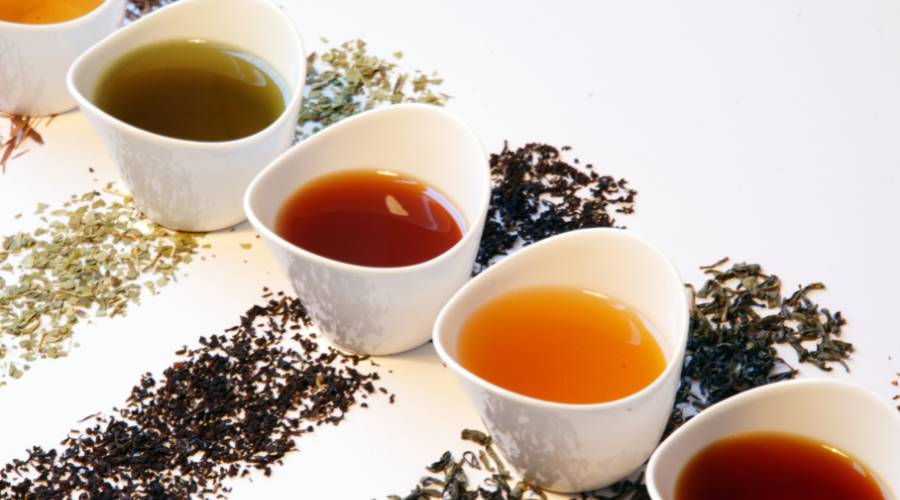
Organic vs Fair-Trade Tea Explained
Share
When it comes to selecting the perfect cup of tea, understanding the differences between organic and fair trade tea becomes essential for conscious consumers.
- Organic tea refers to teas cultivated without synthetic fertilizers, pesticides, or genetically modified organisms (GMOs). These practices ensure a purer taste and higher quality product.
- Fair trade tea focuses on ethical sourcing, guaranteeing that farmers receive fair wages and work in safe conditions.
For those prioritizing health and environmental sustainability, recognizing these differences is critical. While organic teas contribute to biodiversity preservation and improved soil health, fair trade emphasizes social equity and community empowerment. Both pathways play a significant role in fostering sustainable tea production.
Taking into account these aspects allows you to make informed decisions that align with your values. Whether your priority is health benefits or ethical considerations, understanding organic vs fair trade tea will guide you in choosing a product that supports both your well-being and global sustainability efforts.

Understanding Organic Tea
Organic tea is grown using strict farming methods that avoid synthetic fertilizers and pesticides. This ensures that the tea leaves are free from harmful chemicals, resulting in a cleaner product. To be labeled as "organic," tea must meet specific certification standards which often vary by region but generally focus on sustainable farming methods and environmental stewardship.
Health Benefits
When you drink organic tea, you're enjoying a beverage packed with antioxidants. These natural substances are known to fight oxidative stress in the body, potentially lowering the risk of chronic diseases. Many fans also believe that organic tea tastes better than non-organic types, claiming that the lack of chemical residues allows for a more authentic flavor.
Eco-Friendly Practices
The production of organic tea follows environmentally friendly practices that support ecological well-being. Here are some key aspects:
-
Biodiversity Preservation: Organic farms often maintain diverse plant species within and around their plantations, encouraging a balanced ecosystem.
-
Soil Health Maintenance: By avoiding chemical inputs, organic farming techniques help preserve soil fertility and structure. Practices such as crop rotation and composting are commonly employed to enrich the soil naturally.
These methods not only produce high-quality tea but also benefit the environment by reducing pollution and promoting biodiversity. For consumers who want to make eco-friendly choices, organic tea offers an attractive option that aligns with both personal health goals and ecological values.
Exploring Fair Trade Tea
Fair trade tea is a shining example of ethical sourcing and sustainable practices in the tea industry. It ensures that producers receive fair compensation for their work, promoting economic justice and social equity. This certification requires that farmers and workers are paid fair wages, work under safe conditions, and have access to essential rights like collective bargaining.
Key Principles of Fair Trade Tea:
- Fair Compensation: Farmers receive a minimum price for their crops, providing them with financial stability even when market prices fluctuate.
- Community Development: Part of the fair trade premium is invested back into the community, funding projects such as schools, healthcare facilities, and infrastructure improvements.
- Environmental Standards: Encourages sustainable farming practices that minimize environmental impact and preserve biodiversity.
Ethical tea sourcing is at the heart of fair trade principles. By choosing fair trade tea, you're supporting a system that values human dignity and environmental responsibility. Fair trade certified organizations often provide training on sustainable agricultural methods, ensuring that farming practices are not only profitable but also environmentally sound.
The impact of fair trade extends beyond the plantations, fostering empowerment among workers and contributing to the overall well-being of their communities. This ethical approach resonates with conscious consumers who prioritize products that align with their values of fairness and sustainability.
Choosing fair trade tea means making a conscious decision to support ethical sourcing practices that benefit both people and the planet. It’s about ensuring that every cup you sip has contributed positively to someone's life while maintaining ecological balance.
Comparing Organic and Fair Trade Tea
To understand the differences between organic tea and fair trade tea, we need to look at their similarities and differences, particularly in terms of certifications, focus areas, and requirements.
Similarities
Here are some key similarities between organic and fair trade tea:
- Commitment to Ethical Practices: Both organic and fair trade certifications strive to promote ethical practices within the tea industry. They emphasize sustainability, ensuring that production methods do not harm the environment or exploit workers.
- Quality Assurance: These certifications serve as a mark of quality assurance to consumers. When you see an organic or fair trade label, it indicates adherence to certain standards that guarantee the quality and ethical production of the tea.
- Consumer Trust: Brands with these certifications often enjoy increased consumer trust due to their commitment to transparency and sustainable practices.
Differences
While organic and fair trade teas share some common goals, they also have distinct focuses:
Focus Areas
- Organic Certification: Primarily focuses on environmental health. It requires that no synthetic pesticides or fertilizers are used, and emphasizes soil health and biodiversity.
- Fair Trade Certification: Concentrates on social equity. It ensures fair wages and safe working conditions for farmers and workers while fostering community development.
Certification Requirements
The certification processes for organic and fair trade teas also differ:
- Organic Tea: Requires rigorous testing of soil, water, and tea leaves to ensure they meet specific organic standards. This includes maintaining a buffer zone around the tea gardens to prevent contamination from non-organic farms.
- Fair Trade Tea: Demands adherence to fair labor practices, including minimum wage standards, safe working environments, and community investment plans.
Certifications Overlap
In some cases, you may come across teas that carry both organic and fair trade labels. This dual certification signifies a comprehensive commitment to both environmental sustainability and social responsibility.
As a conscious consumer, recognizing this overlap can help you make informed decisions that align with your values.
The comparison between organic and fair trade tea highlights how each certification addresses different aspects of sustainability but can complement each other beautifully when combined. This synergy supports a more holistic approach toward ethical consumption in the tea industry.

Sustainable Tea Production Practices
Incorporating sustainable tea production practices is crucial for both the environment and the communities that rely on tea cultivation. As a key driver of ecological balance, sustainability ensures that tea farming does not deplete resources or harm ecosystems. For instance, maintaining biodiversity in tea gardens helps preserve native species and prevents soil erosion, while also enhancing the resilience of crops to pests and diseases.
From a social standpoint, sustainable practices uplift local communities by providing fair wages and safer working conditions. This fosters a stable economic environment, ensuring that farmers and workers can sustain their livelihoods without compromising on quality or ethical standards.
To achieve eco-friendly practices, farmers can implement several techniques:
- Agroforestry: Integrating trees with tea crops can improve soil fertility and provide shade, leading to healthier plants and higher yields.
- Organic Fertilizers: Utilizing compost and natural fertilizers enhances soil health while reducing dependence on chemical inputs.
- Water Management: Implementing efficient irrigation systems minimizes water wastage, a vital resource in many tea-growing regions.
- Integrated Pest Management (IPM): Encouraging natural pest predators reduces the need for harmful pesticides, promoting a safer environment for both workers and wildlife.
Through these methods, sustainable tea production not only bolsters environmental health but also nurtures the social fabric of communities involved in agriculture. This approach reflects the growing commitment within the industry to produce quality teas responsibly.
Brands Leading the Way in Organic and Fair Trade Tea
1. JusTea
JusTea stands out as a pioneering brand in the world of organic and fair trade tea. This company has made significant strides in empowering local farmers, particularly in Kenya. By establishing direct trade relationships, JusTea ensures that farmers receive fair wages, enhancing their livelihoods and supporting community development initiatives. The brand’s dedication to ethical sourcing reflects its commitment to both quality and sustainability, offering a range of teas that boast rich flavors and authentic origins.
2. Clipper
Clipper is renowned for its unwavering commitment to producing teas that are both organic and fair trade certified. With a focus on maintaining high ethical standards, Clipper ensures that all its products are sourced under conditions that promote worker welfare and environmental sustainability. Their extensive selection includes everything from classic black teas to innovative herbal blends, each crafted with care to deliver an exceptional tea-drinking experience.
3. Green & Black's
Green & Black's, although widely recognized for its premium chocolate offerings, also extends its commitment to ethical practices into the realm of tea. This brand emphasizes rigorous certification processes to guarantee that every product meets stringent organic and fair trade standards. By prioritizing responsible sourcing, Green & Black’s contributes positively to the communities involved in its supply chain while providing consumers with high-quality teas renowned for their distinctive taste profiles.
These brands exemplify how quality and ethics can go hand-in-hand in the tea industry. They serve as inspiring examples for other companies looking to make a positive impact through sustainable and responsible business practices. Each offers unique product lines that allow conscious consumers to enjoy their favorite beverages without compromising on values or flavor.
Brewing the Perfect Cup of Organic or Fair Trade Tea
Brewing the perfect cup of organic or fair trade tea starts with understanding the nuances of loose leaf tea. The brewing process significantly impacts the flavor and quality of your tea, making it essential to follow specific instructions for each type.
Tips for Brewing Different Types of Loose Leaf Teas
- Green and White Teas: Use water temperatures between 70-80°C. Steep for 2-3 minutes to preserve their delicate flavors and avoid bitterness.
- Black and Herbal Teas: Ideal water temperatures range from 90-100°C. A steeping time of 3-5 minutes allows these robust teas to develop full-bodied flavors.
- Oolong Teas: Benefit from multiple infusions. Start with a shorter steeping time and gradually increase with each subsequent brew.
Using high-quality organic or fair trade loose leaf tea can enhance these flavors further, offering a more nuanced taste experience compared to bagged varieties.
Loose Leaf vs. Bagged Tea Comparison
Loose leaf tea is often considered superior to bagged tea due to several factors:
- Flavor Retention: Loose leaves provide more room for expansion, resulting in a richer infusion that captures complex flavors.
- Quality Differences: Loose leaf teas tend to use whole leaves, while bagged teas often contain smaller particles known as "fannings" or "dust," which may compromise quality.
- Nutrient Content: The larger surface area of loose leaves helps retain more nutrients and antioxidants, aligning with health-conscious choices.
Choosing between organic vs fair trade tea doesn't have to be exclusive; both options offer unique benefits that can be savored when brewed correctly.
Making a Choice: Organic or Fair Trade?
When deciding between organic and fair trade tea, it's essential to align your choices with your values and priorities. Both certifications offer unique benefits, focusing on different aspects of tea production.
Organic Tea:
- Prioritizes environmental sustainability and healthy consumption.
- Emphasizes chemical-free farming practices.
- Offers potential health benefits like higher antioxidant levels.
Fair Trade Tea:
- Focuses on ethical sourcing and social responsibility.
- Ensures fair wages and safe working conditions for farmers.
- Supports community development projects in tea-growing regions.
Consider what matters most to you—sustainable farming methods or ethical labor practices. Your choice might also be influenced by the taste preferences or specific health benefits you are seeking. This organic vs fair trade tea summary encourages conscious consumers to make informed decisions that resonate with their lifestyle and ethical beliefs.
Where to Buy Quality Organic or Fair Trade Tea Online?
If you're looking to buy organic tea online, you can check out Tea Stop Shop. They offer a carefully chosen selection of top-quality loose leaf teas. As an Australian-owned and operated brand, they guarantee 100% organic quality and are committed to sustainability and mindful sipping experiences. In addition to organic tea leaves, they also have complete matcha tea sets sourced from the finest tea gardens worldwide. With Tea Stop Shop, you can enjoy exceptional flavor and aroma while supporting eco-friendly practices. Visit their website for a wide range of teas that align with your values in the organic vs fair trade tea debate.
FAQs (Frequently Asked Questions)
What is the difference between organic and fair trade tea?
Organic tea focuses on environmentally friendly farming practices, ensuring no synthetic pesticides or fertilizers are used. Fair trade tea prioritizes ethical sourcing, guaranteeing fair wages and safe working conditions for farmers. Understanding these differences helps consumers make informed choices.
What are the health benefits of consuming organic tea?
Organic tea is known for its higher antioxidant levels, which can contribute to better overall health. Additionally, many people find that organic teas have superior flavor profiles compared to non-organic varieties due to the absence of artificial additives.
How does fair trade certification benefit tea farmers?
Fair trade certification ensures that tea farmers receive fair wages and work under safe conditions. It also promotes community development by investing in local initiatives, which can lead to improved quality of life for workers and their families.
Are there similarities between organic and fair trade certifications?
Yes, both organic and fair trade certifications aim to promote sustainable practices but focus on different aspects. Organic certification emphasizes environmental health, while fair trade certification centers on social equity and economic justice for producers.
What sustainable practices are involved in tea production?
Sustainable tea production involves eco-friendly practices such as biodiversity preservation, soil health maintenance, water conservation, and responsible use of resources. These techniques help reduce the environmental impact of tea farming while supporting local ecosystems.
Where can I buy quality organic or fair trade tea online?
For premium organic loose leaf teas, you can explore options at the Tea Stop Shop. They offer a variety of certified organic and fair trade teas that cater to mindful consumers seeking high-quality products.
